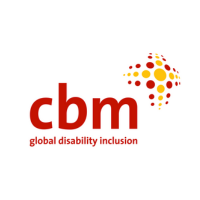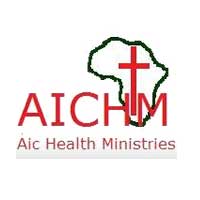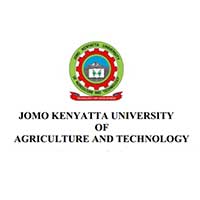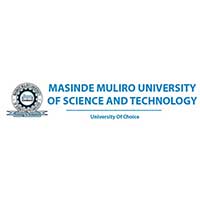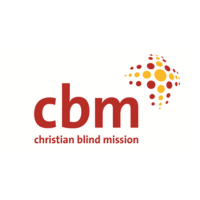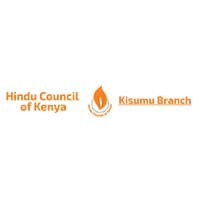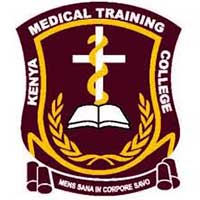TERMS OF REFERENCE (ToR)
MID-TERM REVIEW OF THE EMPOWERMENT OF PERSONS WITH VISUAL IMPAIRMENT PROJECT
Background
The project brings together four autonomous eye hospitals in Kenya that offer comprehensive low vision services. These are Sabatia Eye Hospital, Kikuyu Eye Hospital, Kwale Eye Centre, and Tenwek Hospital. Low Vision is part of Visual Impairment (VI) and the services of the project are particularly addressed to children with visual impairment. Activities of this project are geared towards contributing to the national strategic objective to improve vision-related quality of life for people with functional low vision through people-centered approaches. Initiatives are geared to reduce the barriers experienced by people particularly children with visual impairment to access appropriate medical/rehabilitation services, education, and in the long run when reaching adulthood equal opportunities in the labor market.
Project Interventions
The project collaborates with the national government of Kenya and various counties through the ministries of education and health. The main interventions are:
- Promotion and provision of adequate rehabilitation measures for people with visual impairment to maximize their visual functioning (e.g. read print instead of Braille) at base stations and through outreach services in the communities and schools.
- Integration of people with visual impairment in education, health, social, labor, community e.t.c
- Awareness creation and advocacy for accessible policy development on national and local levels.
- Capacity building of selected county government hospitals to create referrals and provide low vision services.
- Increase sustainability levels of the service delivery through the capacity strengthening of the organization and embedding service delivery in government structures.
Objectives of the Mid-Term Review
The objective of the MTR is to analyze the results and performance of the project to date, identifying key constraints and challenges, early signs of the potential impact of the project interventions and proposing corrective actions, potential project re-programing, and future strategies and directions, if needed, for project implementation from late 2022 onward. The MTR will identify potential gaps in project design, assess progress toward the achievement of the project objective and outcomes, identify and document lessons learned (including lessons that might improve the design and implementation of other Low Vision projects), and make recommendations regarding specific actions that should be taken to improve the project.
The review will include both the evaluation of the progress in project implementation, measured against planned results set forth in the project design document in accordance with budget allocation, as well as the initial and potential impacts of the project. . The review will also address underlying causes and issues contributing to targets not adequately achieved.
Rationale of the Review
The Mid-Term Review is intended to identify weaknesses and strengths of the project design and implementation strategy to come up with recommendations for any necessary changes in the overall design and orientation of the project by evaluating the adequacy, efficiency, and effectiveness of its implementation, as well as assessing the project outputs and outcomes to date. The overall project performance will be measured based on the project’s logical framework indicators.
Consequently, the review assignment is also expected to make detailed recommendations on the work plan for the remaining project period. It will also provide an opportunity to assess early signs of the project’s success or failure and prompt necessary adjustments.
The MTR must provide evidence-based information that is credible, reliable, and useful. The review team is expected to follow a participatory and consultative approach ensuring close engagement with government ministries, county health eye departments/units, implementing partners, the project team, and other key stakeholders.
The review assignment will also identify lessons learned and best practices from the project which could be applied to future and other ongoing projects.
Objectives of the review
In summary, the project Mid-Term Review has the following main objectives:
- To evaluate to what extent the program has delivered effective, efficient, timely, and relevant interventions to project participants in relation to the project design.
- To examine the extent to which collaboration with the Ministry of Health, Ministry of Education, and implementing partners positively impacted the project participants.
- To determine key lessons learned, and recommendations to inform current and future project designs.
Scope
The scope of the Mid-Term Review will cover all components and activities undertaken in the framework of the project. The review team will compare planned outputs of the project to actual outputs and assess the actual results to determine their contribution to the attainment of the project objectives. The evaluation will evaluate the efficiency of project management, including the delivery of outputs and activities in terms of quality, quantity, timeliness, and cost efficiency. The evaluation will also determine the likely outcomes and impact of the project in relation to the overall and specific objectives of the project including to;
- Assess current progress towards achieving the expected results as defined in the project Results Matrix and document activities’ variations in relation to the initial action plan
- Assess continued relevance of the intervention for the target group and advice on revisions when necessary
- How effective is the project implementation in addressing the identified need?
- Document partner implementation models and identify best practices describing how different partners approach the same set of activities.
- Assess the contribution of the project to the pursuit of the national priorities articulated in the national strategic plan for eye health
- Identify and/or assess emerging issues from the national context that may call for review and/or reorientation of the project
- Identify lessons that can benefit the revision of the current project, as well as the design of the successive ones
- Draw conclusions on opportunities for greater progress towards persons with VI in Kenya.
The anticipated scope of work includes, but is not necessarily limited to, assessing the following:
- The relevance of project design, scope, and priorities, including an analysis of the validity of objectives, project components, implementation, and project achievement against expected results defined in the project documents.
- An in-depth review of the implementation of various project components to identify the level of achievement of the planned project outputs, the contribution to institutional development and sustainable human capacities, and; in cases of not effective achievement, and analysis of the underlying reasons with recommendations for improvements, specifically assessing:
- project management (technical capacity and management experience of the implementing partners) in achieving the expected results;
- project components, including cross-cutting issues of disability inclusion, gender equality, social inclusion, safeguarding of children and adults at risk;
- monitoring, evaluation, accountability, and learning through the M&E framework and program quality framework;
- project communication strategy to ensure project visibility to donors, partners stakeholders, and the public.
- Project risks and considerations about the project approach or delivery of project activities, taking into consideration safeguarding, safety, and security
- Partnership, participation, and stakeholder engagement including roles and responsibilities, capacity for engagement in the design and delivery of the project, and the level of participation of stakeholders in the achievement of the desired outcome, as well as the effectiveness of such participation.
- Assessment of the early potential impact of project interventions. Possible gaps/weaknesses in the current project design and possible interventions and measures that could be continued to support the government partners in the future.
- Recommendations for future direction, strategies, and areas of project focus as per the findings including an outline work plan for the remaining project period.
- General lessons learned and best practices that can be considered in the planning and design of future institutional strengthening interventions for the government and partners.
Apart from the above, the project’s mid-term results should be rated in the following aspects:
- Relevance: The extent to which the intervention objectives and design respond to beneficiaries, global, country, and partner/institution needs, policies, and priorities, and continue to do so if circumstances change.
- Efficiency: The extent to which the intervention delivers, or is likely to deliver, results in an economic and timely way.
- Effectiveness: The extent to which the intervention achieved, or is expected to achieve, its objectives, and its results, including any differential results across groups.
- Impact: The extent to which the intervention has generated or is expected to generate significant positive or negative, intended, or unintended, higher-level effects.
- Sustainability: Assess the likelihood of results becoming sustainable with a specific focus on capacity and ownership over the process.
- Coherence: The compatibility of the intervention with other interventions in a country, sector, or institution.
Expected results of the mid-term review
- Recommendations on how to ensure the relevance of the project in line with beneficiary needs and government priorities
- Suggestions to improve effectiveness in line with the objectives of the intervention.
- Intermediate results of the implementation are documented, with evidence.
- Recommendations on improving the sustainability of interventions beyond the scope of the project.
- The review team has employed an inclusive and participatory approach in the review, contributing to increased capacity and competence in monitoring and review among the project partners, as well as creating their ownership of the result of the review.
- The review having elaborated the mid-term review in a way that makes it possible for the final review of the Project in 2023 to build on its methodology and analysis.
Methodology
The Consultant (s) will propose a suitable and detailed methodology that exhaustively addresses the study’s objectives at the baseline’s inception; however, the Consultant(s) will be selected based on proposed methodologies submitted in response to this ToR. Robust mixed methods with a participatory approach are preferred. In addition, provide a detailed baseline analysis framework, proposed tools, and proposed outline for the report.
Deliverables
- A MTR report which includes: (1) Executive Summary (max 3 pages), (2) Introduction, (3) Methodology, (4) Analysis of the current status of the Project about key components, outcomes, outputs, and implementation strategies, (5) Assessment of the context for the ongoing project implementation, (6) Key findings, early indications of best practices and lessons learned, (7) Conclusions and recommendations reflecting the most likely scenarios for the implementation of the Project in the remaining (years); and (8) Annexes. The main text excluding annexes should be a maximum of 50 pages.
- There should be a minimum of the following annexes:
- Evaluation consultant’s ToR/short CV
- Terms of Reference of the review
- List of persons/organizations consulted
- List of literature/documentation consulted
- Evaluation work plan executed
- Problems and adjustments table
- Findings synthesis table with a performance rating
- Questionnaires
- Extract lessons learned and best practices that can be considered in the planning and design of future projects supporting
- Prepare the draft report to seek comments from different stakeholders
- Present the key findings and recommendations in a workshop to validate the draft report
- Finalization and submission of the report
Time Schedule
The review is expected to take not more than sixty (60) days. The Consultant(s) is expected to be available for the work to start on the 3rd of October 2022 and the final report should be submitted no later than 2nd December 2022.
Budget
The proposed budget should be inclusive of all taxes applicable.
Contacts
All deliverables will have to be approved by the Low Vision Programme Manager and CBM Global Programme Manager
Expression of interest should be sent to the address below by 26th September 2022 to:
Peter Mugodo
Program Manager
Low Vision Cluster Programme
Sabatia Eye Hospital
Email: peter.mugodo@sabatiaeyehospital.org





